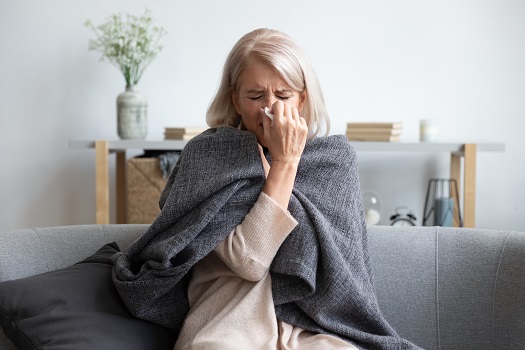Pneumonia is one of the leading causes of death among children, but it can also be fatal for elderly people. Family caregivers need to help their senior loved ones maintain strong health and protect them against dangerous bacteria and viruses. Staying hydrated, practicing good hygiene, and making healthy lifestyle choices could prevent your loved one from developing pneumonia. Below you’ll find more information on the illness, including what makes it life-threatening and ways it can be prevented.
Impact
Infections anywhere in their bodies can cause pneumonia in elderly people. If left untreated, the illness can be fatal because bacteria can spread throughout the body and prevent many organs from functioning. In some cases, a senior’s immune system is too weak to fight off the infection and pneumonia becomes life-threatening, but early treatment increases recovery odds and boosts survival rates.
If your senior loved one needs help managing an illness or assistance with daily tasks, make sure you choose a top-rated provider of elderly home care. Anchorage Home Care Assistance is here to help your loved one live a happier and healthier life in the golden years. From the mentally stimulating activities in our Cognitive Therapeutics Method to our friendly Care Managers who are available to answer your questions 24 hours a day, we offer a wide array of high-quality at-home care services.
Warning Signs
Pneumonia affects every senior differently, but there are standard symptoms most older adults with the condition experience at some point. When you know the warning signs, you can help your loved one receive immediate treatment, which boosts recovery odds and lowers the risk of the illness becoming life-threatening. The most common symptom of pneumonia is a cough that produces phlegm. The infection can also increase confusion, which is a sign many caregivers assume is a normal part of the aging process.
Other pneumonia symptoms in the elderly are:
• Chest pain when coughing
• Sweating
• Nausea
• Fatigue
• Unusually low body temperature
Treatment
The type of pneumonia a senior develops determines the type of treatment the doctor will prescribe. For instance, if your parent has developed bacterial pneumonia, the doctor may prescribe medicines to treat the infection. However, antibiotics alone don’t always cure viral infections, which is why seniors must stay hydrated and drink plenty of fluids to flush the bacteria out of their bodies. Aging adults must follow their doctors’ directions correctly to prevent the illness from becoming fatal. If your loved one feels better but hasn’t finished taking all of his or her antibiotics, he or she should continue with the medication until it’s gon.
If your senior loved one has been diagnosed with a serious condition and needs help with tasks like meal prep, transportation, bathing, and grooming, reach out to Home Care Assistance, a leading provider of homecare families can trust. We also offer comprehensive care for seniors with dementia, Alzheimer’s, and Parkinson’s.
Prevention Tips
Bad habits such as smoking and poor hygiene increase the risk of pneumonia, which is why seniors need to let go of these unhealthy choices. Being admitted to the hospital could also raise the odds of developing pneumonia. Even if your loved one is at a treatment facility to receive care for another issue or illness, being exposed to sick people and various germs could lead to pneumonia, among other health problems. Develop an adequate care plan that prevents hospital admission or readmission. You can start by minimizing your loved one’s risk of falls and staving off heart problems, which are the top causes of hospitalization among the elderly.
The best way to treat pneumonia is to prevent it, especially in seniors. If you’re the primary family caregiver for a senior loved one living in Anchorage, live-in care is available if your loved one’s health has become too difficult to manage without professional expertise. At Home Care Assistance, we take measures to help seniors prevent illness and injury by assisting with exercise and mobility, preparing nutritious meals, helping with bathing and other personal hygiene tasks, and much more. If you need professional care for your senior loved one, Home Care Assistance is just a phone call away. Reach out to one of our Care Managers today at (907) 770-0907.
